Bulk discounts available. For details visit: www.amacombooks.org/go/specialsales or contact special sales:
Phone: 800-250-5308E-mail: specialsls@amanet.org
View all the AMACOM titles at: www.amacombooks.org
This publication is designed to provide accurate and authoritative information in regard to the subject matter covered. It is sold with the understanding that the publisher is not engaged in rendering legal, accounting, or other professional service. If legal advice or other expert assistance is required, the services of a competent professional person should be sought.
PMI and the PMI logo are service and trademarks of the Project Management Institute, Inc. which are registered in the United States of America and other nations; PMP and the PMP logo are certification marks of the Project Management Institute, Inc. which are registered in the United States of America and other nations; PMBOK, PM Network, and PMI Today are trademarks of the Project Management Institute, Inc. which are registered in the United States of America and other nations; building professionalism in project management is a trade and service mark of the Project Management Institute, Inc. which is registered in the United States of America and other nations; and the Project Management Journal logo is a trademark of the Project Management Institute, Inc.
PMI did not participate in the development of this publication and has not reviewed the content for accuracy. PMI does not endorse or otherwise sponsor this publication and makes no warranty, guarantee, or representation, expressed or implied, as to its accuracy or content. PMI does not have any financial interest in this publication, and has not contributed any financial resources.
Additionally, PMI makes no warranty, guarantee, or representation, express or implied, that the successful completion of any activity or program, or the use of any product or publication, designed to prepare candidates for the PMP Certification Examination, will result in the completion or satisfaction of any PMP Certification eligibility requirement or standard.
Library of Congress Cataloging-in-Publication Data
Kendrick, Tom.
101 project management problems and how to solve them : practical advice for handling real-world project challenges / Tom Kendrick.
p. cm.
Includes index.
ISBN-13: 978-0-8144-1557-3 (pbk.)
ISBN-10: 0-8144-1557-1 (pbk.)
1. Project management. I. Title. II. Title: One hundred one project management problems and how to solve them. III. Title: One hundred and one project management problems and how to solve them.
HD69.P75K4618 2011
658.404dc22
2010015878
2011 Tom Kendrick
All rights reserved.
Printed in the United States of America.
This publication may not be reproduced, stored in a retrieval system, or transmitted in whole or in part, in any form or by any means, electronic, mechanical, photocopying, recording, or otherwise, without the prior written permission of AMACOM, a division of American Management Association, 1601 Broadway, New York, NY 10019.
About AMA
American Management Association ( www.amanet.org ) is a world leader in talent development, advancing the skills of individuals to drive business success. Our mission is to support the goals of individuals and organizations through a complete range of products and services, including classroom and virtual seminars, webcasts, webinars, podcasts, conferences, corporate and government solutions, business books, and research. AMAs approach to improving performance combines experiential learninglearning through doingwith opportunities for ongoing professional growth at every step of ones career journey.
Printing number
10 9 8 7 6 5 4 3 2 1
To all the good project managers I have worked with,
from whom I have learned a great deal.
Also to all the bad project managers I have worked with,
from whom I have learned even more.
Contents
Introduction
It depends.
Project management problems frequently arise as questions, and most good project management questions have the same answer: It depends.
By definition, each project is different from other projects, so no specific solution for a given problem is likely to work exactly as well for one project as it might for another. That said, there are general principles that are usually effective, especially after refining the response with follow-up questions, such as What does it depend on? For many of the project management problems included in this book, the discussion begins with some qualifications describing what the response depends on and includes factors to consider in dealing with the issue at hand.
This book is based on questions I have been asked in classes and workshops, and in general discussions on project management regarding frequent project problems. The discussions here are not on theoretical matters (What is a project?), nor do they dwell on the self-evident or trivial. The focus here is on real problems encountered by project managers working in the trenches, trying to get their projects done in todays stress-filled environment. These responses are based on what tends to work, at least most of the time, for those of us who lead actual projects.
Some problems here relate to very small projects. Others are about very large projects and programs. Still others are general, and include some guidance on how you might go about applying the advice offered in a particular situation. In all cases, your judgment is essential to solving your particular problems. Consider your specific circumstances and strive to make the punishment fit the crime. Adapt the ideas offered here if they appear helpful. Disregard them if the advice seems irrelevant to your project.
Several general themes recur throughout. Planning and organization are the foundations for good project management. Confront issues and problems early, when they are tractable and can be resolved with the least effort and the fewest people. Escalate as a last resort, but never hesitate to do so when it is necessary. People will treat you as you treat them, so act accordingly. Good relationships and trust will make solving any problem easieryou really do get by with a little help from your friends.
Given the broad spectrum of project types and the overwhelming number of ways that they can get into trouble, its unlikely that this (or any) book will effectively resolve all possible problems. Nonetheless, I hope that this book will help you to successfully complete your projects, while retaining some of your sanity in the process.
Good luck!
Tom Kendrick
tkendrick@failureproofprojects.com
San Carlos, CA
PART 1: GENERAL
1. What personality type fits best into project management?
Depends on:
 The type and scale of the project
The type and scale of the project
 Experience of the project team
Experience of the project team
Understanding Personality Types
There are a large number of models used to describe personalities. One of the most prevalent is the Myers-Briggs Type Indicator (MBTI). One of its factors describes a spectrum between introversion and extroversion. Projects are about people and teams, so good project leaders tend to be at least somewhat extroverted. Introverted project managers may find their projects wandering out of control because they are insufficiently engaged with the people responsible for the work.

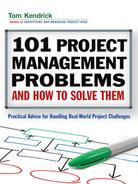
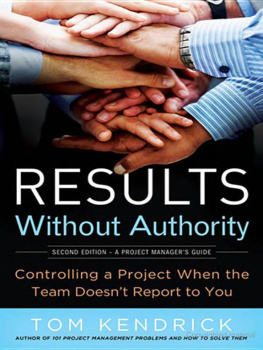
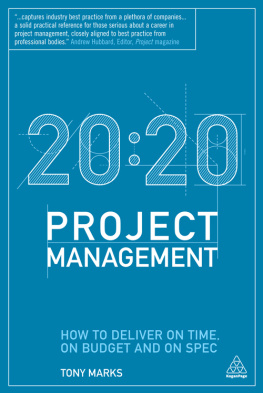
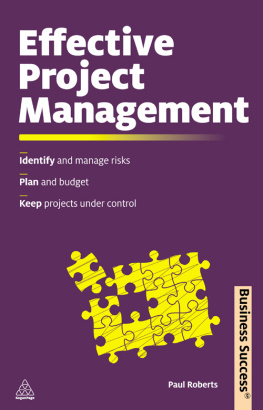

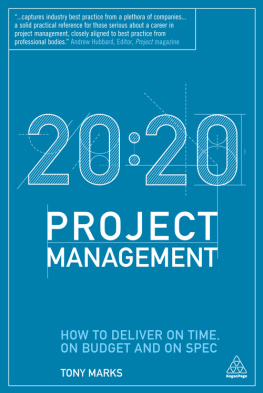

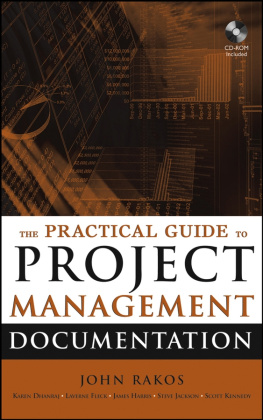
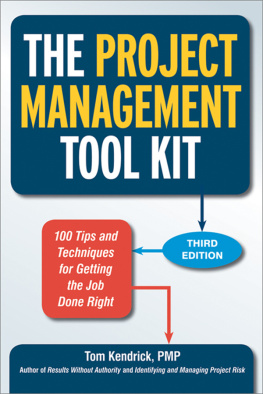


 The type and scale of the project
The type and scale of the project